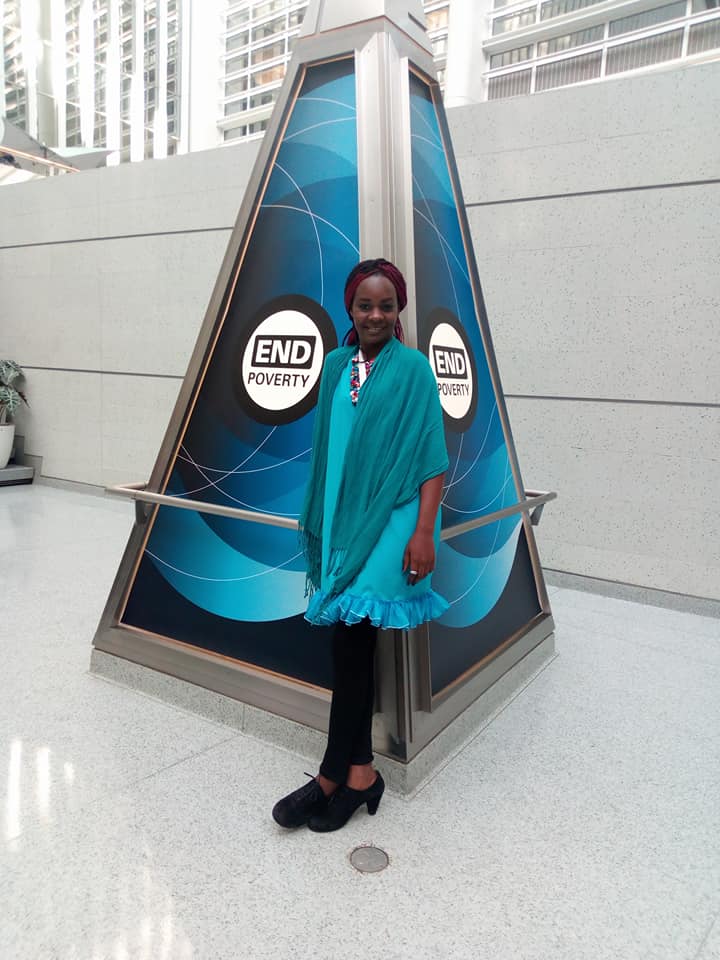My earliest memory of being hungry was as a 4-5 year old child, when my mum and dad had gone somewhere while I was out playing and I missed my lunch, so I climbed in the back kitchen window of the bungalow where we lived and stole a big, round, cake covered in coconut, topped with a glace cherry, from the kitchen cupboard. It was theft. I knew it was a theft, so I ate it all to hide my sin, so it made me deceitful also, as I didn’t own up to it then, or any other time I can think of, until now. I’d like to apologize to my mother for it, but she is long, dead and gone, so I will have wait in the hope that I will see her again.
I know that the 2015-2030 UN Goal #2.” Zero Hunger”, for Transforming our World does not refer to situations as I have described, but, my description does highlight one of the ill effects of hunger, namely, that it lowers ones inhibitions about stealing and deceitfulness. I lived in shame from it for my entire life, except the 35 years of amnesias I had from head injury at age 15. It reminds me that, when I moved from Wales to England to work, in the late 1960s, my new colleagues put me in my place in the pecking order by reciting a child’s anti-Welsh nursery rhyme to me [https://en.wikipedia.org/wiki/Taffy_was_a_Welshman].
I recall being told that this rhyme originated in England following the transportation of a Welshman to the penal colonies of the Australias, in the 17th century, for stealing food for his wife and children as they were dying of starvation. Hence we can see hunger can cause inhumane punishment and racist inequalities and discrimination to raise their ugly heads in our social order, if we allow them.
But the principal reason for this goal is to reduce death and sickness of people due to their starvation of food. The body needs food to survive, and will deteriorate, decay and die, if it is denied the sustenance it needs. The squires of William the Conqueror, his half brothers, Odo and Robert, had to introduce sustainable real estate governance to England in the 20 years they had in possession of it on his behalf. The result was, everybody it supported got enough food to survive those 20 years, and, give evidence as to that fact in the Great Book of Winchester Cathedral that recorded the public inquiry held by the church to determine the allodial real estate of William [https://en.wikipedia.org/wiki/Domesday_Book].
That’s not to say that the Anglo Saxon barons who were their predecessors, failed to feed the population, but they lost the battle to retain England, which might well have had a lot to do with how much, and what type of food, they lived on.
I was raised by my mother’s maternal grandfather, six days a week, from 3½ days old to 3½ years old. He taught me how grow organic garden fruits and vegetables. It was still war-time when I was born and the war-time rationing continued for several years after. So, many people grew their own fruit and vegetables, and had very healthy diets. There were no supermarkets in those days. But there was a market in the town where we lived that was open on two days a week, so we were always able to supplement what we grew with whatever additional food we needed, although meat, eggs, poultry and fish were in short supply.
After my mother’s maternal grandfather passed away, we moved to the village where my father worked as a collier, but we also grew fruit and vegetables in the back garden there, as most people did in those days. The village did not have a market however, and prices in the grocers’ shops were much higher than in the market, so we made do with less. I took to eating worms to supplement my protein diet and small coal to supplement my mineral intake.
When I got a little older, I got a Saturday job with the village’s mobile green grocer as my parents were on low wages, so that brought in some extra cash and some cheap fruit and vegetables so my diet improved for a while. He used a horse and cart as transport for his products, initially, and later a van. But he ended up in prison for stealing coal belonging to the National Coal Board, so that source of good, cheap food and a modest income dried up when I was around 10 years of age.
From age 11 to age 15 I had ‘school dinners’ but sometimes spent the dinner money on other things, and found that, when I did that, my metabolism slowed and I slept rather a lot. At 15 and 16 I obtained ‘summer holiday’ jobs working for first, a fruit and vegetables importer, and second a multiple department store that included a green grocery, so my diet improved also. But, thereafter, I did not take proper care of myself due to having an autistic condition, Asperger’s Syndrome, so I lost weight, and found myself sleeping a lot, again, as my metabolism was running on ‘low’.
It wasn’t until after I married, and set up home, that I began growing my own fruit and vegetables, as I had been taught by my mother’s maternal grandfather. And that went on until a back injury just before age 30 laid me low and disabled me from attending to my garden. It is something I have always regretted ever since as there’s nothing as satisfying as growing your own fruit and vegetables. The ability to go out the garden and harvest just enough Brussel sprouts you have grown from seed, for your Christmas Dinner is, to my mind, the utmost luxury you can have at Christmastime.
It was a couple more years before I became involved in promoting sustainable food supply for a county region. This sprang from engagement with the Development Board for Rural Wales and the challenge of reversing the fortunes of its geographical area. First came the matter of rehashing the structure and local development plans of the area, and attracting UNESCO interest in nominating all or part of it as a Man and his Biosphere Reserve. My part in it was to devise and implement a highways and transportation development plan to provide top quality, accessibility and connectivity between the region and the rest of the world. It was a much less ambitious notion than it sounds because the highways and transportation network of the world functions as an integrated planning system; and, all it needed was articulating and promoting.
All the county and district planning authorities of the region endorsed it and the United Kingdom’s Secretary of State for Wales approved it, thus making it the land use law of the region, but the UK Prime Minister began to undermine it by removing County Surveyors’ powers of restricting planning permission for developments that contradicted it. It forced me to counter with a Private Members Bill that would function as a vote of no confidence in the Prime Minister. Ambitious, yes. But I had gauged the feelings of the nation right.
The Prime Minister countered by signing Agenda 21 of the United Nations Rio de Janeiro Summit Conference, committing to all local planning authorities throughout the United Kingdom having to take Environmental considerations fully into account in Development decisions. But, unfortunately, for the Prime Minister, it was too little and too late, to stay in office. Introducing the after effects of signing the United Kingdom up to Agenda 21 had to be taken on by a new Prime Minister, and that’s when the notion of sustainability of all real estate development in the United Kingdom became something that was realizable, so it came to pass and is now so entrenched in the psyche of the population, that its strength is unassailable.
Ten years on from that encounter with a Prime Minister of the Parliament of the United Kingdom I was offered nomination to the New Year’s honours list by those who recalled it was my Bill that broke the dead lock that Prime Minister put on us County Surveyors. It was the typical reaction of politicians, and I knew how fickle they could be, so I declined the offer, saying my actions were determined by call of duty, so I did not warrant such an honour, and they accepted that. But, even so, the County Council which was my employer at the time, made me accept sitting in a seat of honour, in the public gallery, between the Leader of the Council and the Chairman of the Highways and Transportation Committee, for the final debate of the Bill by the Welsh Parliamentary Grand Committee.
I had already drafted the County and District primary and secondary legislation to bring about a ‘sea change’ in the land use planning and development practices of the region and that event sounded the death knell of the old way and the birth bell of the new way. This was in February, 1999, when everyone was panicking that the internet would crash down at midnight on the 31st December 1999 and throw global business into complete chaos.
But that didn’t happen, and instead, I became engaged in monitoring European highways and transportation strategies and policies for the Mid Wales Economic Development and Tourism Partnership. How did this have any impact on hunger? Well, it is one thing for a continental community to ensure it produces enough food to ensure none of its population need go hungry, and quite another to ensure it has adequate highways and transportation facilities to get it to all its citizens. In this sense, cities and communities are highways and transportation facilities, and this message had to be promulgated throughout the portfolio of the European Union, to ensure integrated sustainable development over the ensuing 10 years (to my retirement in 2010).
So, that’s what I spent those ten years of my life and work doing – promulgated integrated sustainable development between highways and transportation governance and economic development and tourism governance and food production and distribution governance. It wasn’t easy as entrenched vested interests raised their heads from time to time to destroy or disrupt that integration. But there was no great and cry that the integration had failed to ‘come up with the goods’ where they needed, when they were needed. It even spawned a new term which has been on all politicians’ and businesses’ vocabularies ever since, called, ‘just in time delivery’. That’s why I am writing this polemic. To deliver this information to the globe in a scalable and transferable/translatable form.



